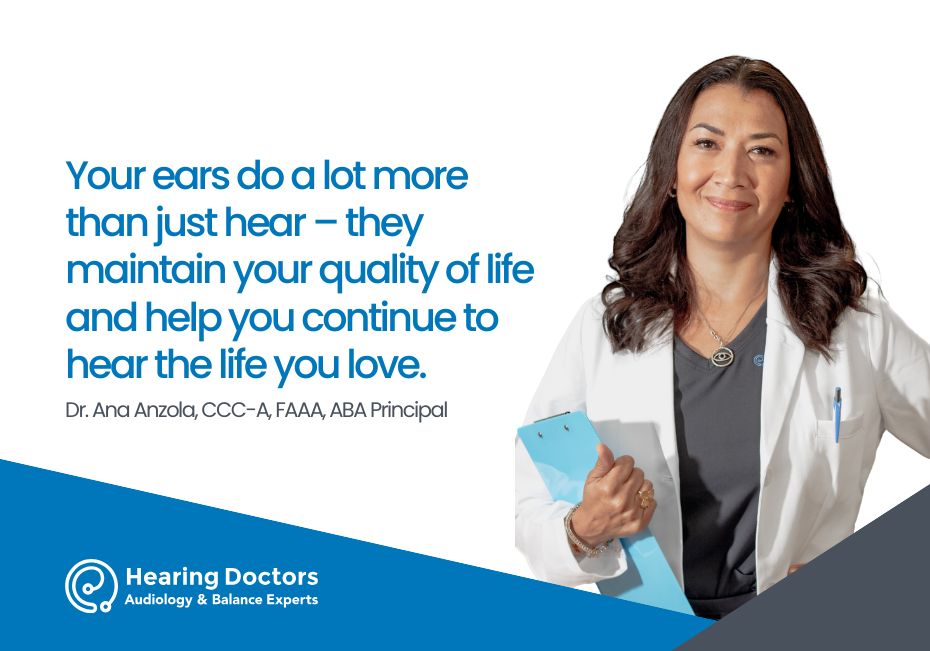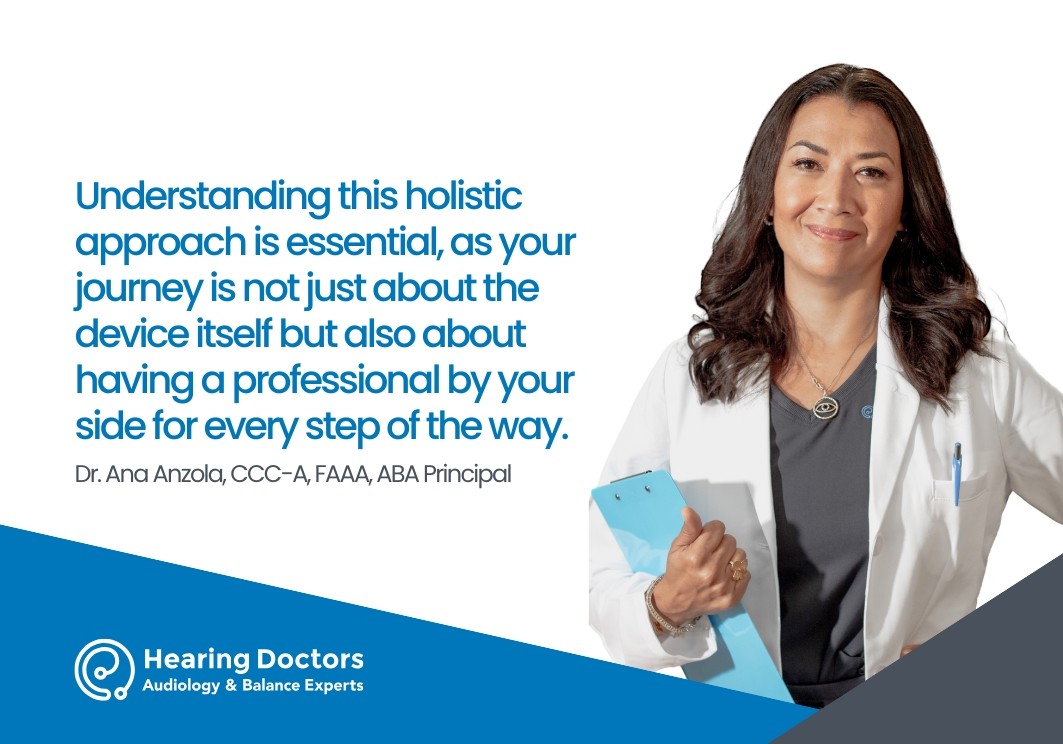Sep 1, 2022
Dr. Ana
Anzola, CCC-A, FAAA, ABA Principal
Hearing loss is one of the most common health conditions in the US today. With this ailment being as common as it is, it's easy to forget that other problems can develop from neglecting your hearing health.
The most common of which is tinnitus. This condition causes ringing in the ears. It can also cause other sounds such as hissing, whistling, and other uncomfortable noises only the patient can hear.
While there is no cure for tinnitus, there are ways to manage it so you can lead a hassle-free lifestyle and not miss out on the essential things in life.
What Is Tinnitus?
Tinnitus develops from hearing loss in most cases. This is why early detection and regular hearing assessments are crucial to keeping your hearing healthy.
Currently, there are two types of tinnitus:
Subjective – This is the most prevalent type that we see come through our doors here in Virginia and Maryland. This form of tinnitus causes a sound that only the patient can hear.
Objective – This type of tinnitus can sometimes be heard by your healthcare professional and is far less common.
What Are the Causes of Ringing in the Ears?
Usually, the sound is most noticeable in quiet settings, such as when you lie down to sleep at night.
Most people experience some form of tinnitus from time to time. Others experience such a loud, constant sound in their ears that they cannot acknowledge the sounds they would rather focus on, such as conversation.
The brain will find ways to stay active when hearing loss is present. This is where the fabricated sound comes from. It’s your brain trying to stay healthy by keeping the listening section active and alert.
Possible Tinnitus Treatments
There are so many causes of tinnitus that it’s challenging to narrow it down to one path of relief. Physicians recommend cutting caffeine, alcohol, and sodium from the diet and cessation of smoking.
Sometimes, medications can be altered to something that provides similar treatment effects but doesn’t trigger the tinnitus. Of course, if the tinnitus is caused by an infection or wax blocking the ear canal, it may stop when a professional audiologist resolves the condition.
For those whose tinnitus is directly related to hearing loss, the use of hearing aids is effective in covering up the tinnitus sound. For others, using a sound generator or masking device may be necessary to distract the brain from focusing on the tinnitus.
Tinnitus retraining therapy (TRT) is available for severe cases and often involves the combination of a masking device and counseling. There is no “one-size-fits-all” remedy.
Home Remedies to Stop the Ringing
Many over-the-counter supplements, drops, and pills are aimed at those who suffer from tinnitus. However, there is very little scientific evidence that any of these products effectively eliminate it.
The best option is to always speak to your physician and audiologist about ways to deal with tinnitus.
We have been treating this condition for years and have the experience to make a correct diagnosis. It all starts with a comprehensive hearing assessment.
How Do I Manage My Tinnitus?
If you suspect that you or a loved one may be struggling with any of these symptoms, please contact us as soon as possible.
Our team is standing by and ready to help get your hearing back to a healthy state. Schedule your hearing assessment right here.
We are always available to answer your questions over the phone in a friendly, no-obligation setting. Your hearing is important, and we want to ensure that you and everyone in our communities are professionally taken care of.
Popular Blogs

Jun 3, 2025
Dr. Ana
Anzola, CCC-A, FAAA, ABA Principal
Understanding Types of Hearing Loss: Sensorineural, Conductive, and Mixed

May 21, 2025
Dr. Ana
Anzola, CCC-A, FAAA, ABA Principal
What Impact Is Artificial Intelligence Having on Hearing Aid Technology?

Apr 28, 2025
Dr. Ana
Anzola, CCC-A, FAAA, ABA Principal
Do You Think You’re Too Young for Hearing Loss?

Apr 15, 2025
Dr. Ana
Anzola, CCC-A, FAAA, ABA Principal
The Best Hearing Aids in 2025: Insights From a Doctor of Audiology


